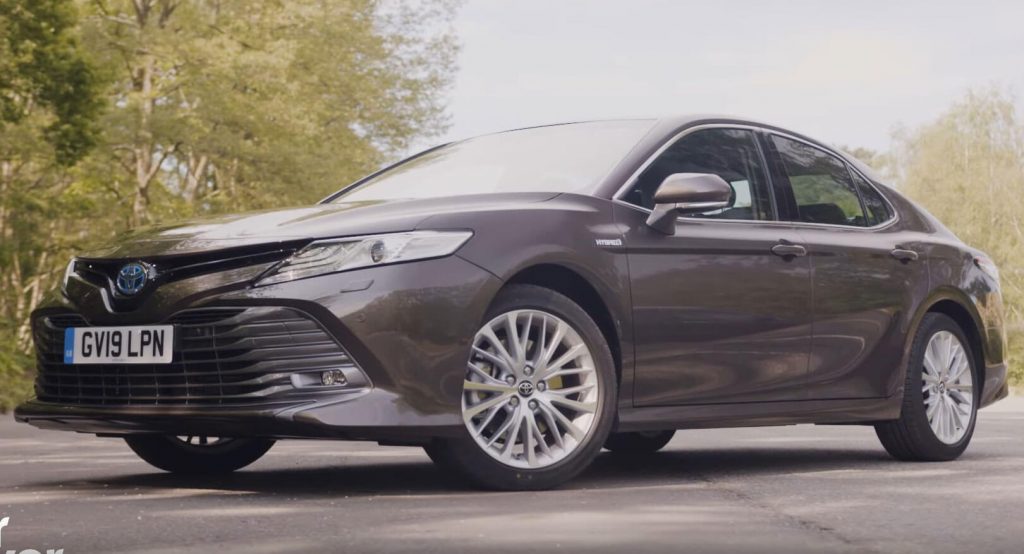Last year, Toyota dropped the Avensis from Europe, only to replace it with something those living in the Old Continent haven’t seen in a long time: the Camry.
Like its predecessor, the new Camry is a mid-size sedan, which rivals the likes of the Mazda6, Volkswagen Passat, Skoda Superb, Ford Mondeo and Opel/Vauxhall Insignia. Now, all of these excel in different chapters, so can the Toyota do the same or, better yet, beat them at their own game?
Let’s see, first, you get a hybrid powertrain as the sole choice, which combines the 2.5-liter, four-cylinder engine with an electric motor and a battery pack. The total output produced is 215 hp and, on average, it returns 50.5-53.2 mpg UK (5.6-5.3 l/100 km / 42.1-44.4 mpg US), while emitting 98-101 g/km of CO2.
Also Watch: 2020 Toyota Camry May Not Be Ideally Suited For Europe
Unlike some of its rivals, the Camry is a sedan, which means no liftback tailgate that opens up more space in the boot. Still, the luggage capacity is actually better than the Insignia’s, although it cannot match the class-leading Superb.
Even the base Design model, which starts at just under £30,000 ($37,131/€33,367) in the UK, is very well equipped, getting standard leather trim, heated seats and reversing camera, whereas upgrading to the Excel, which adds a £1,295 ($1,603/€1,440) premium, will get you a wireless charging pad for compatible mobile devices and other stuff.
So far, everything sounds promising, but we’re only getting to the downsides, which are quite a lot. From the wood trim that’s actually plastic, to the infotainment system that’s laggy and has terrible graphics, the Camry may not be suited to everyone’s taste. Then you have the CVT, which is slow to respond sometimes, and a driving experience that doesn’t excel.
Toyota makes some of the most reliable cars out there, and this alone should be enough to make some consider buying the new Camry. But would you do it?







